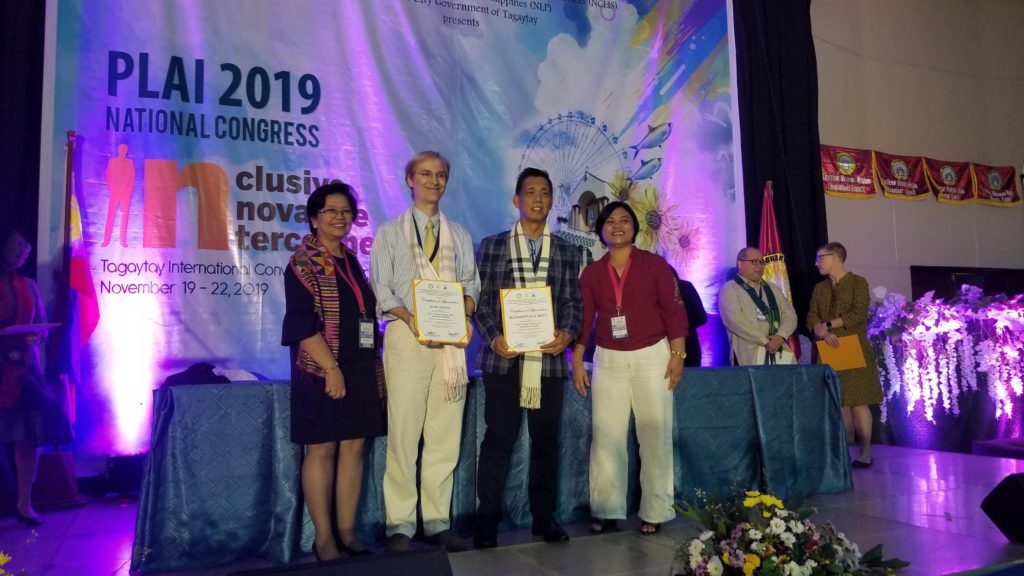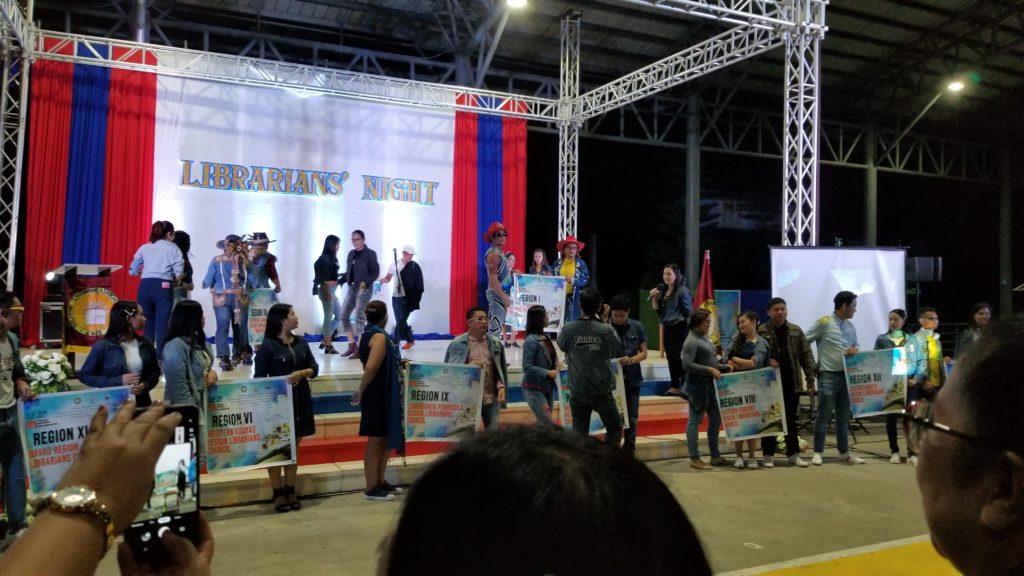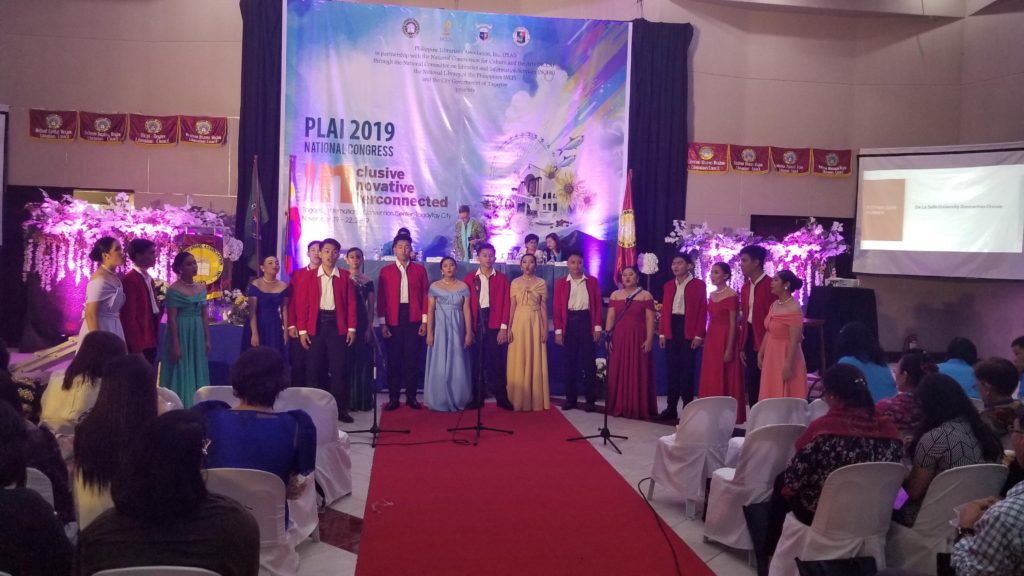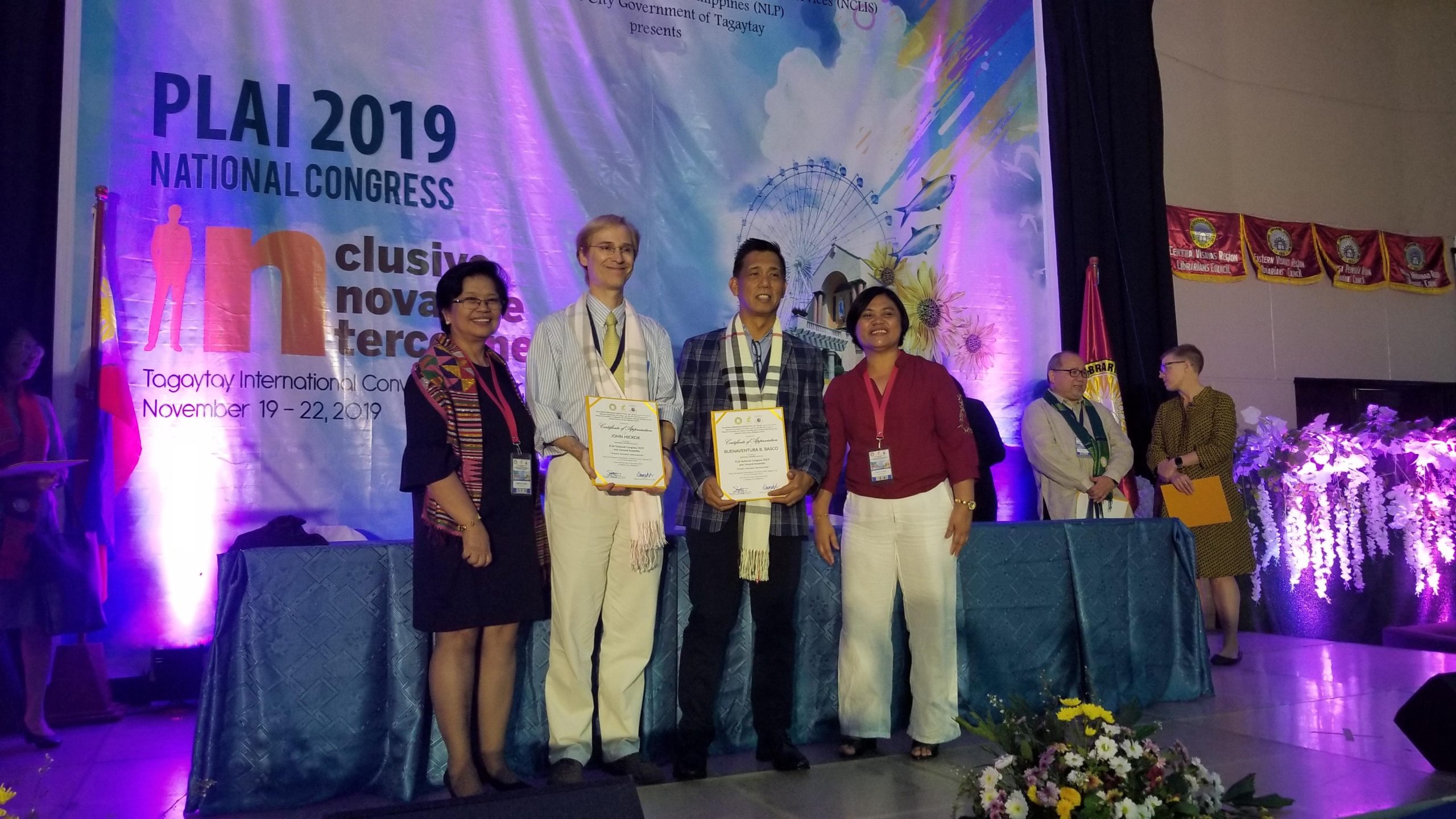By Buenaventura (Ven) Basco
APALA Travel Grant Recipient, Associate Librarian, University of Central Florida, Past President & Executive Director, APALA, and Member, ALA International Relations Committee, Asia and Ocean Subcommittee
Some of my friends and colleagues have asked me, “What were the highlights of your PLAI conference experience?” There is no simple answer because there were so many great opportunities. If I had to classify my impressions as a first-time attendee, some highlights would include presenting with a colleague, meeting new people, the PLAI conference experience itself, and enjoying Tagaytay City.
So, let me start with our presentation. John Hickok, library faculty and International Outreach Librarian at California State University, Fullerton, and I presented “Best Practices: An Exciting Showcase of Inclusive, Innovative and Interconnected Libraries in Asia and the USA.” Our presentation showcased inspiring, real-life examples of those libraries. I started by providing background information about Asian Pacific American Librarians Association (APALA) then showcased several recipients of the “Talk Story” grant award program. John followed by talking about his experience documenting the best practices of over 1,000 libraries throughout Asia that he visited during the past 15 years. We showcased a wealth of examples of what works, what does not, what gets results, and what can be replicated. Our presentation was very lively and appealing to everyone. It was interactive, and we featured real-life libraries with photos, audio, and video and practical, along with how-to comments on implementing the features.

Meeting new people including Philippine librarians of different backgrounds, LIS faculty members, and other international librarians is an experience that I’ll treasure. I had the opportunity to personally interact with Emma Rey, PLAI President, Yolanda Granda, Chair, Professional Regulatory Board for Librarians, Kathleen Obille, Dean of the School of Library and Information Studies at the University of the Philippines, Emily Drabinski, Associate Professor and Critical Pedagogy Librarian at CUNY, New York, Namtip Wipawin, Associate Professor at Sukhothai Thammathirat Open University (STOU) in Nonthaburi, Thailand, Von Totanes, Library Director at Ateneo De Manila University, and many more who also became my Facebook friends and contacts for my future visits to the Philippines someday.
Like most conferences, PLAI Congress was not all work and no play. During the conference, a variety of opportunities were available to engage with other presenters and attendees. I had some wonderful interaction with presenters during the poster session event which featured projects from local municipalities to who illustrated how one university interconnected their libraries in innovated ways. And unlike other conferences that I’ve attended, everyone enjoyed free snacks and lunches during the conference. During one of these luncheons, I was able to learn more about how librarians in the Philippines receive their license and was surprised to learn that all library graduates have to pass the Librarian Licensure Examination administered by the Philippine Professional Regulation Commission. Lastly, the most enjoyable part of the conference was the Librarian’s Night. Everyone enjoyed a sumptuous buffet of Filipino favorites. A parade of librarians from all regions in the country at the same time compete for the best comedy act. Finally, we were treated to musical and dance performances, and the evening was capped by dancing the rest of the night.


Tagaytay City is one of the most beautiful cities that I have visited. It is known for its cool breezes and tourist attractions, such as a spectacular view of Taal Volcano and the famously unfinished People’s Park in the Sky. I also visited Museo Orlina, famous for showcasing the artistry of internationally acclaimed Ramon Orlina, a pioneer and foremost practitioner of glass sculpture in the Philippines.
My PLAI conference experience was a perfect opportunity and a good start to network with Philippine Library and Information Science (LIS) faculty and librarians outside the United States. With the connection I established, I see a lot of possibilities for collaboration and I look forward to potentially going back to visit libraries and become a guest lecturer in some LIS classes.

